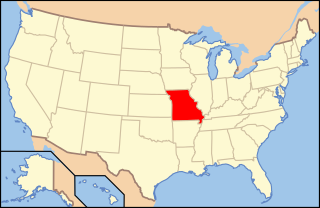
Prohibition is the act or practice of forbidding something by law; more particularly the term refers to the banning of the manufacture, storage, transportation, sale, possession, and consumption of alcoholic beverages. The word is also used to refer to a period of time during which such bans are enforced.

The legal drinking age is the minimum age at which a person can legally consume alcoholic beverages. The minimum age alcohol can be legally consumed can be different from the age when it can be purchased in some countries. These laws vary between different countries and many laws have exemptions or special circumstances. Most laws apply only to drinking alcohol in public places with alcohol consumption in the home being mostly unregulated. Some countries also have different age limits for different types of alcoholic drinks..

The Oregon Liquor Control Commission (OLCC) is a government agency of the U.S. state of Oregon. The OLCC was created by an act of the Oregon Legislative Assembly in 1933, days after the repeal of prohibition, as a means of providing control over the distribution, sales and consumption of alcoholic beverages. To this end, the agency was given the authority to regulate and license those who manufacture, sell or serve alcohol. Oregon is one of 18 alcoholic beverage control states that directly control the sales of alcoholic beverages in the United States. In 2014, the passage of Oregon Ballot Measure 91 (2014) legalized the recreational use of marijuana in Oregon and gave regulatory authority to the OLCC.
The Washington State Liquor and Cannabis Board, formerly the Washington State Liquor Control Board, is an administrative agency of the State of Washington. The Liquor and Cannabis Board is part of the executive branch and reports to the Governor. The board's primary function is the licensing of on and off premises establishments which sell any type of alcohol, and the enforcement and education of the state's alcohol, tobacco, and cannabis laws.

With the passing of Oklahoma Question 792 in the 2016 general elections, starting October 1, 2018, any establishment with a beer and wine license will be permitted to sell beer of up to 8.99% ABV as well as wine up to 14.99% ABV, under refrigeration. This marks a significant relaxation of alcohol laws in Oklahoma. Prior to this date, strong beer and wine could only be sold at package liquor stores, and only at room temperature.

The alcohol laws of Missouri are among the most permissive in the United States. Missouri is known throughout the Midwest for its largely laissez-faire approach to alcohol regulation, in sharp contrast to the very strict alcohol laws of some of its neighbors, like Kansas and Oklahoma.

The alcohol laws of Kansas are among the strictest in the United States, in sharp contrast to its neighboring state of Missouri, and similar to its other neighboring state of Oklahoma. Legislation is enforced by the Kansas Division of Alcoholic Beverage Control.

The alcohol laws of Pennsylvania contain many peculiarities not found in other states, and are considered some of the strictest regulations in the United States.

The state laws governing alcoholic drinks in New Jersey are among the most complex in the United States, with many peculiarities not found in other states' laws. They provide for 29 distinct liquor licenses granted to manufacturers, wholesalers, retailers, and for the public warehousing and transport of alcoholic drinks. General authority for the statutory and regulatory control of alcoholic drinks rests with the state government, particularly the Division of Alcoholic Beverage Control overseen by the state's Attorney General.
Alcohol laws of Australia are laws that regulate the sale and consumption of alcoholic beverages. The legal drinking age is 18 throughout Australia. The minimum age for the purchase of alcoholic products in Australia is 18. A licence is required to produce or sell alcohol.
The Gujarat alcohol poisonings occurred in July 2009 in Gujarat, resulting in the death of 136 people from consumption of bootleg liquor.

Alcohol laws are laws in relation to the manufacture, use, being under the influence of and sale of alcohol or alcoholic beverages that contains ethanol. Common alcoholic beverages include beer, wine, and distilled spirits. The United States defines an alcoholic beverage as, "any beverage in liquid form which contains not less than one-half of one percent of alcohol by volume", but this definition varies internationally. These laws can restrict those who can produce alcohol, those who can buy it, when one can buy it, labelling and advertising, the types of alcoholic beverage that can be sold, where one can consume it, what activities are prohibited while intoxicated, and where one can buy it. In some cases, laws have even prohibited the use and sale of alcohol entirely, as with Prohibition in the United States from 1920 to 1933.
The alcohol laws of Wisconsin consist of both statewide statutes and local ordinances governing the sale of alcohol.
The legal drinking age in India and the laws which regulate the sale and consumption of alcohol vary significantly from state to state. In India, consumption of alcohol is prohibited in the states of Bihar, Gujarat and Nagaland as well as the union territory of Lakshadweep. There is a partial ban on alcohol in some districts of Manipur. All other Indian states permit alcohol consumption but fix a legal drinking age, which ranges at different ages per region. In some states the legal drinking age can be different for different types of alcoholic beverage.

Cannabis in India has been used since as early as 2000 BCE. In Indian society, common terms for cannabis preparations include charas (resin), ganja (flower), and bhang, with Indian drinks, such as, bhang lassi and bhang thandai, made from bhang, being one of the most common legal usages in India.
Alcohol Prohibition in tamilnadu is governed by State Prohibition and Excise department as per Tamil Nadu Prohibition Act, 1937. TASMAC, state government owned company controls the wholesale and retail vending of alcoholic beverages in the State. On 24 May 2016, after swearing-in J. Jayalalitha has announced to close 500 liquor shops and reduce the business hours of State-run liquor shops across the State. On 20 February 2017, the first office order signed by the Chief Minister Edappadi K. Palaniswami was the closure of 500 liquor outlets owned by the public sector TASMAC. This is in addition to the 500 liquor outlets closed down by late Chief Minister J Jayalalithaa in May 2016.

Medicinal Liquor Prescriptions Act of 1933 is a United States federal statute establishing prescription limitations for physicians possessing a permit to dispense medicinal liquor. The public law seek to abolish the use of the medicinal liquor prescription form introducing medicinal liquor revenue stamps as a substitution for official prescription blanks.













